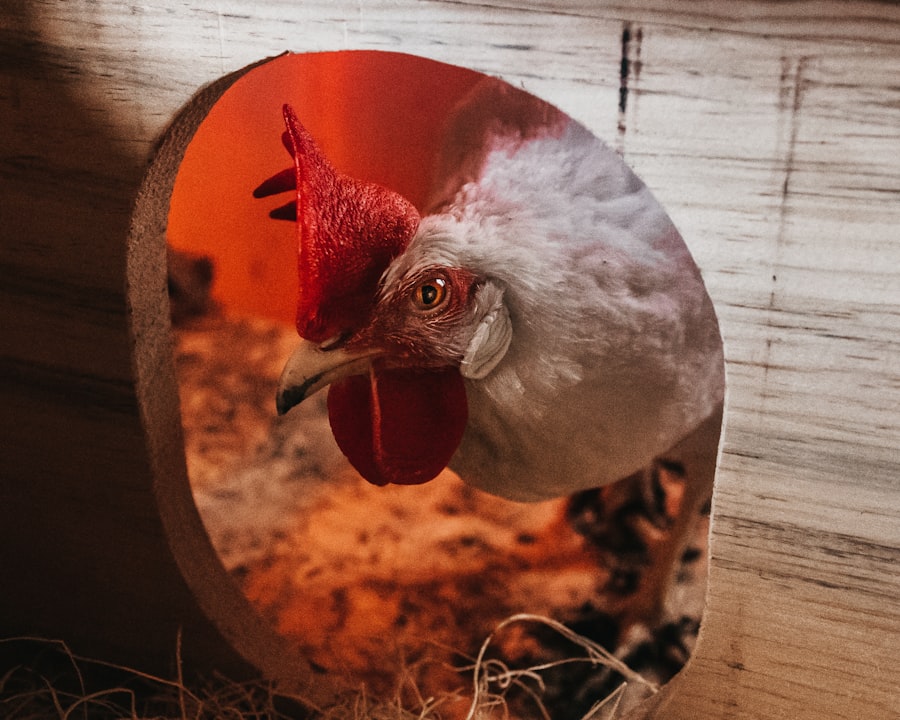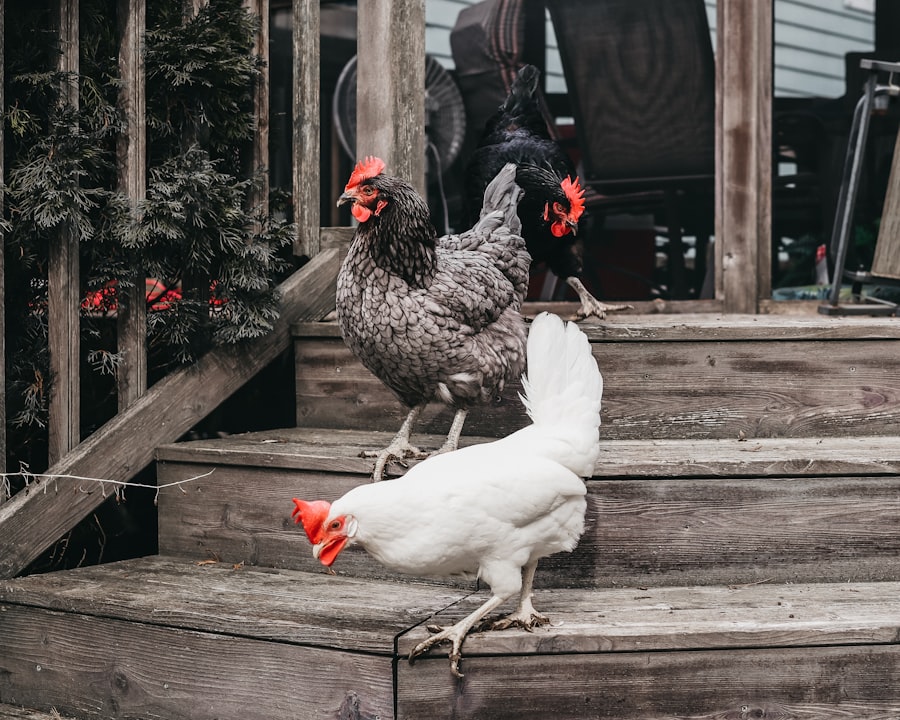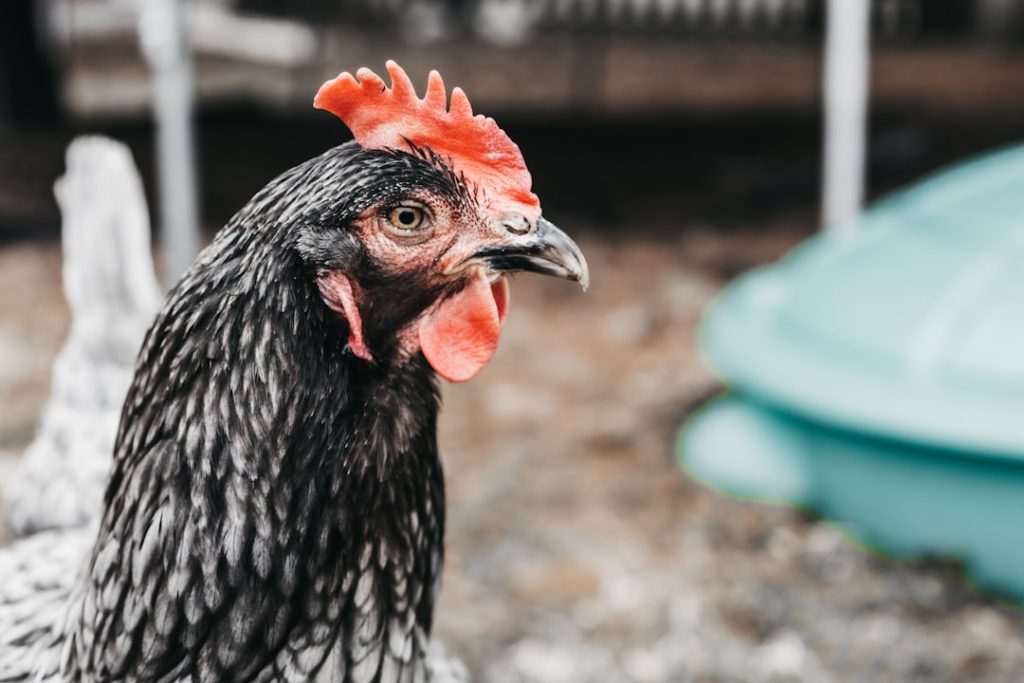Mosquitoes pose a significant global health threat, serving as vectors for numerous diseases including malaria, dengue fever, and Zika virus. Their widespread presence and potential for disease transmission have led to increased efforts in finding effective and environmentally friendly methods of population control. One unexpected solution that has gained attention is the use of chickens as a natural mosquito control measure.
Chickens, traditionally valued for their eggs and meat, have demonstrated potential in reducing mosquito populations. This article examines the relationship between chickens and mosquitoes, the mechanisms by which chickens can effectively control mosquito numbers, the advantages of employing chickens for this purpose, important factors to consider when using chickens for mosquito management, and additional natural mosquito control strategies. By exploring these topics, we aim to provide a comprehensive overview of this innovative approach to mosquito population control.
Table of Contents
- 1 The relationship between chickens and mosquitoes
- 2 How chickens can help control mosquito populations
- 3 The benefits of using chickens to keep mosquitoes away
- 4 Considerations for keeping chickens for mosquito control
- 5 Other natural methods for controlling mosquitoes
- 6 Conclusion and final thoughts
- 7 FAQs
- 7.1 What are the natural behaviors of chickens in relation to mosquitoes?
- 7.2 Do chickens effectively keep mosquitoes away?
- 7.3 What are some considerations for using chickens to control mosquitoes?
- 7.4 Are there any potential drawbacks to using chickens to control mosquitoes?
- 7.5 What are some alternative methods for controlling mosquitoes?
Key Takeaways
- Chickens can be effective in controlling mosquito populations
- Chickens eat mosquitoes and their larvae, reducing their numbers
- Using chickens for mosquito control is a natural and sustainable method
- Keeping chickens can also provide other benefits such as eggs and fertilizer
- Other natural methods for controlling mosquitoes include using plants and fish
The relationship between chickens and mosquitoes
The Hunting Ground
Chickens frequent areas with standing water, such as ponds, puddles, and even water troughs, where mosquitoes lay their eggs and their larvae develop. As they peck at the ground and drink from these water sources, they inadvertently consume mosquito larvae along with other insects. This natural behavior makes them effective predators of mosquitoes and can significantly reduce mosquito populations in their vicinity.
A Delicate Balance
On the other hand, mosquitoes are attracted to the carbon dioxide and body heat that animals, including chickens, emit, making them a target for mosquito bites. However, the presence of chickens in an area can disrupt the breeding cycle of mosquitoes by consuming their larvae and reducing their numbers.
A Mutual Benefit
This creates a natural balance in which chickens help control mosquito populations while also being protected from excessive mosquito bites. The relationship between chickens and mosquitoes is an interesting one, with both species influencing each other’s behavior and populations in a delicate dance.
How chickens can help control mosquito populations

Chickens can help control mosquito populations in several ways. As mentioned earlier, chickens are natural foragers and will actively seek out insects, including mosquitoes and their larvae. By consuming mosquito larvae in standing water, chickens can prevent the larvae from developing into adult mosquitoes.
This reduces the overall number of mosquitoes in an area and can help minimize the risk of mosquito-borne diseases. Additionally, the presence of chickens can disrupt the breeding cycle of mosquitoes. Mosquitoes lay their eggs in standing water, and their larvae need water to develop.
By frequenting areas with standing water, such as ponds or puddles, chickens inadvertently consume mosquito larvae while foraging for food. This disrupts the breeding cycle of mosquitoes and can lead to a significant reduction in mosquito populations over time. Furthermore, chickens can also help control mosquito populations by disturbing their resting and breeding sites.
Chickens will scratch at the ground and create dust baths, which can disrupt mosquito larvae in the soil and prevent them from developing into adult mosquitoes. This behavior can also disturb adult mosquitoes resting in vegetation or other hiding spots, making it more difficult for them to thrive and reproduce.
The benefits of using chickens to keep mosquitoes away
There are several benefits to using chickens to keep mosquitoes away. One of the primary benefits is that it provides a natural and sustainable method of mosquito control. Unlike chemical insecticides or other artificial means of controlling mosquitoes, using chickens is environmentally friendly and does not introduce harmful substances into the ecosystem.
Chickens are natural predators of insects, including mosquitoes, and their presence can help maintain a balanced ecosystem by controlling insect populations. Another benefit of using chickens to keep mosquitoes away is that it can reduce the risk of mosquito-borne diseases. By consuming mosquito larvae and reducing the overall number of adult mosquitoes in an area, chickens can help minimize the risk of diseases such as malaria, dengue fever, and Zika virus.
This is particularly important in regions where these diseases are prevalent and where access to medical resources may be limited. Furthermore, using chickens for mosquito control can also have additional benefits for chicken owners. Chickens provide a source of fresh eggs and meat, making them a valuable addition to a sustainable and self-sufficient lifestyle.
By utilizing chickens for mosquito control, owners can benefit from both pest management and a sustainable source of food.
Considerations for keeping chickens for mosquito control
While using chickens for mosquito control can be effective, there are several considerations to keep in mind when incorporating chickens into a pest management strategy. First and foremost, it is important to ensure that chickens have access to a balanced diet in addition to their natural foraging behavior. While they may consume insects, including mosquitoes and their larvae, as part of their diet, it is essential to provide them with a nutritionally complete feed to meet their dietary needs.
Additionally, it is important to consider the welfare of the chickens when using them for mosquito control. Providing adequate shelter, protection from predators, and access to clean water is essential for maintaining healthy and happy chickens. It is also important to monitor their behavior and health regularly to ensure that they are thriving in their environment.
Furthermore, it is important to consider local regulations and ordinances regarding the keeping of chickens. Some areas may have restrictions on the number of chickens allowed per property or specific guidelines for keeping poultry. It is important to familiarize oneself with these regulations before incorporating chickens into a pest management strategy.
Other natural methods for controlling mosquitoes

Eliminate Standing Water
One effective method is to eliminate standing water where mosquitoes lay their eggs and their larvae develop. This can be achieved by regularly emptying containers such as flower pots, bird baths, and gutters that collect water.
Maintain Swimming Pools and Introduce Mosquito-Eating Fish
Additionally, ensuring that swimming pools are properly maintained and covered when not in use can help prevent mosquitoes from breeding in these areas. Another natural method for controlling mosquitoes is to introduce mosquito-eating fish into bodies of water where mosquitoes breed. Certain species of fish, such as gambusia (mosquito fish) and goldfish, feed on mosquito larvae and can help reduce mosquito populations in ponds or other water sources.
Plant Mosquito-Repelling Vegetation
Furthermore, planting certain types of vegetation can help repel mosquitoes naturally. Plants such as citronella, lavender, marigolds, and basil are known for their insect-repelling properties and can help deter mosquitoes from an area.
Conclusion and final thoughts
In conclusion, using chickens for mosquito control is an effective and natural method that can help reduce mosquito populations and minimize the risk of mosquito-borne diseases. Chickens’ natural foraging behavior makes them effective predators of insects, including mosquitoes and their larvae. By consuming mosquito larvae in standing water and disrupting the breeding cycle of mosquitoes, chickens can play a significant role in controlling mosquito populations.
However, it is important to consider several factors when incorporating chickens into a pest management strategy. Providing a balanced diet, ensuring the welfare of the chickens, and complying with local regulations are essential considerations when using chickens for mosquito control. In addition to using chickens, there are other natural methods for controlling mosquitoes that can be used in conjunction with or as an alternative to using chickens.
By implementing these methods, individuals can create a comprehensive approach to managing mosquito populations while promoting a healthy and sustainable environment.
If you’re considering keeping chickens to help control mosquito populations, you may also be interested in learning about the best type of coop for your feathered friends. Check out this article on what kind of coop is best for chickens to ensure you provide a comfortable and safe environment for your mosquito-eating helpers.
FAQs
What are the natural behaviors of chickens in relation to mosquitoes?
Chickens are known to forage for insects, including mosquitoes, as part of their natural behavior. They will actively hunt and eat mosquitoes and other insects in their environment.
Do chickens effectively keep mosquitoes away?
Chickens can help reduce the mosquito population in their immediate vicinity by eating mosquitoes and their larvae. However, they may not completely eliminate mosquitoes from an area.
What are some considerations for using chickens to control mosquitoes?
It’s important to consider the number of chickens needed to effectively control mosquitoes in a given area, as well as the potential impact on the chickens’ diet and health. Additionally, chickens may not be suitable for all environments or living situations.
Are there any potential drawbacks to using chickens to control mosquitoes?
While chickens can help reduce the mosquito population, they may also cause damage to gardens and landscaping as they forage for insects. Additionally, their droppings can attract other pests if not managed properly.
What are some alternative methods for controlling mosquitoes?
In addition to using chickens, other methods for controlling mosquitoes include removing standing water where mosquitoes breed, using mosquito-repelling plants, and employing mosquito traps or insecticides.
Meet Walter, the feathered-friend fanatic of Florida! Nestled in the sunshine state, Walter struts through life with his feathered companions, clucking his way to happiness. With a coop that’s fancier than a five-star hotel, he’s the Don Juan of the chicken world. When he’s not teaching his hens to do the cha-cha, you’ll find him in a heated debate with his prized rooster, Sir Clucks-a-Lot. Walter’s poultry passion is no yolk; he’s the sunny-side-up guy you never knew you needed in your flock of friends!







